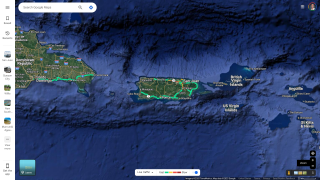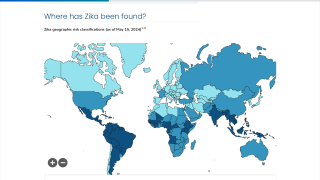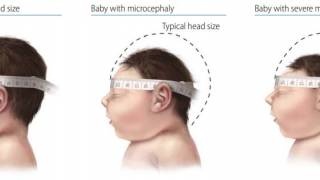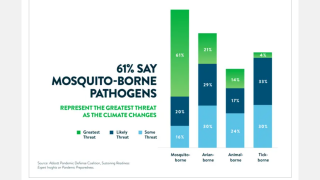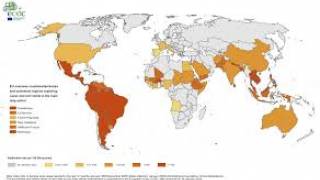Travel-Related Zika Cases August 2019

According to various data sources, there have been 9 additional travel-related Zika virus cases reported since July 18, 2019.
As of August 7, 2019, the states of Florida (29), California (25), Idaho (1), Nebraska (1), New York (1), and Utah (1) have reported 58 travel-related Zika cases this year.
For privacy reasons, these international traveler’s destinations have not been disclosed.
Additionally, the US Territory of Puerto Rico has confirmed 24 locally acquired Zika cases during 2019. These Zika cases were acquired through the presumed local mosquito-borne transmission during 2019, says the US Centers for Disease Control and Prevention (CDC).
From a worldwide perspective, a total of 87 countries and territories have had evidence of autochthonous mosquito-borne transmission of the Zika virus, reports the World Health Organization (WHO), as of July 2, 2019.
And, the WHO says there are 61 countries and territories with Aedes aegypti mosquitoes but have not yet documented Zika transmission. These are the same mosquitoes that spread dengue and chikungunya viruses, says the CDC.
Which means, there is still the potential risk for Zika to spread to additional countries.
During 2019, Zika-related Travel Alerts have been issued by the CDC for countries such as:
This information is very concerning from a public health perspective. While many people with Zika virus infection experience no symptoms, the virus poses potentially serious risks to unborn children.
Various health agencies continue to recommend pregnant women and those considering pregnancy, avoid traveling to Zika endemic countries, such as Puerto Rico or Mexico.
And, these women should refrain from sexual contact with a Zika infected person, says the CDC.
A recent study found pregnant women who become infected with Zika early in pregnancy were 17 times more likely to deliver a baby suffering from Microcephaly, and other negative health conditions.
Microcephaly is a rare neurological condition in which an infant's head is significantly smaller than the heads of other children of the same age and sex. Microcephaly can be caused by a variety of genetic and environmental factors, and often have developmental issues.
Anyone who has not already been infected with the Zika virus can get it. Once a person has been infected, they are likely to be protected from future infections, says the CDC.
To assist healthcare providers to better diagnose the Zika virus, the CDC recently published a report during June 2019, that summarizes existing and new guidance on Zika virus diagnostic testing.
This new guidance is for patients with a clinically compatible illness, who live in or have recently traveled to an area where there is a risk for infection with the Zika virus.
Every diagnostic test can generate false positives and negatives, which is an important reason to test only when there are good clinical reasons.
The WHO continues to work with regional and national health authorities to enhance health system capacity to detect, report, and respond to the continued threat of Zika transmission, as well as to other mosquito-borne viruses and other emerging and re-emerging threats to public health.
To alert international travelers prior to planning a trip abroad, the CDC publishes a ‘map’ of countries reporting Zika cases.
Our Trust Standards: Medical Advisory Committee







